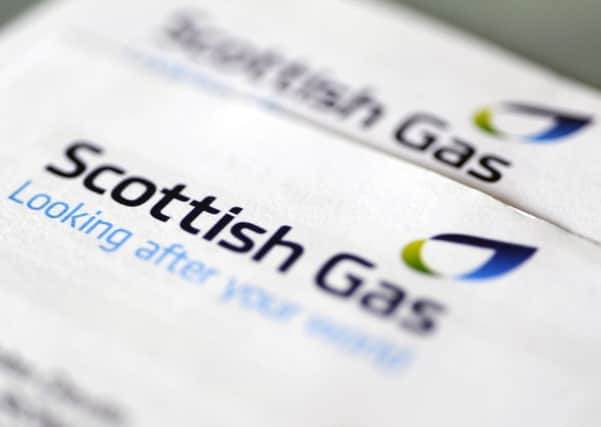Profits surge at Scottish Gas owner's residential arm


Operating profits jumped to £574 million last year, up from £439m a year earlier, thanks to higher energy demand, although overall underlying earnings at parent group Centrica fell 12 per cent to £1.46 billion.
The results come a week after British Gas became one of the last Big Six providers to lower gas prices in the recent round of reductions, with a 5.1 per cent decrease from 16 March.
Advertisement
Hide AdAdvertisement
Hide AdThe industry has been criticised for being slow to pass on falls in wholesale gas prices, with consumer groups hitting out at the size and timing of cuts.
British Gas said it saw a 5 per cent hike in gas usage despite the warmest December on record, as last year overall saw more normal temperatures compared with an exceptionally mild 2014. Profits were also boosted thanks to lower energy-efficiency scheme costs, it added.
The group lost 119,000 customer accounts to stand at 14.6 million despite cutting gas prices three times since the start of 2015, with the latest announcement coming after reductions last February and August.
The Big Six suppliers have only reduced gas prices over the past year, while the majority of the latest round of cuts do not take effect until after winter, which has angered consumer groups.
Ann Robinson, director of consumer policy at uSwitch.com, said: “Hearing news of rising profits when wholesale energy prices have tumbled will leave many British Gas customers wondering if they’re being treated fairly.
“British Gas has cut standard gas prices three times in the last past year, but it should now go further and reduce electricity bills too.”
But Iain Conn, chief executive of Centrica, insisted the group was passing on reductions in wholesale markets.
He said: “We absolutely have passed on the low costs of commodity prices as they fell to our customers.
Advertisement
Hide AdAdvertisement
Hide Ad“The reason the profits went up in 2015 versus 2014 actually is very simple. It’s about the weather and about consumption. And we saw a very mild 2014 and we saw a more normal 2015 and therefore the amount of energy that our customers used went up and therefore the actual total profit went up.”
The wider Centrica business was hit by plunging commodity prices, with the cost of oil more than 70 per cent below peaks seen in the summer of 2014. Adjusted earnings were 4 per cent lower at £863m in 2015, while it saw bottom-line losses narrow to £857m, down from £1.14bn in 2014.
Centrica is slashing costs to deliver savings of £750m over five years, announcing last July that it would cut 6,000 posts across the group – about 10 per cent of its workforce – although 2,000 new jobs will be created, so the net loss will be 4,000. It said 2,000 job losses have already been announced, with another 3,000 expected to go this year.
Centrica is also scaling back on its energy and production arm, cutting spending by £1.5 billion over the next five years.
Conn said: “It was a challenging year and the principal difficulty was the collapsing commodity prices which had a very strong impact on our exploration and production business.”
The group’s results come as the UK energy sector remains under regulatory pressure. The Competition & Markets Authority (CMA) said in July that British households were overpaying suppliers for their energy by about £1.2bn a year and failing to switch to get the best deals.
The CMA has been carrying out a wide-ranging investigation into the energy market since the summer of 2014, with a provisional decision due out next month.
British Gas has been among suppliers fiercely opposed to the CMA’s proposed “default tariff”, which in effect would set a maximum price for home energy.